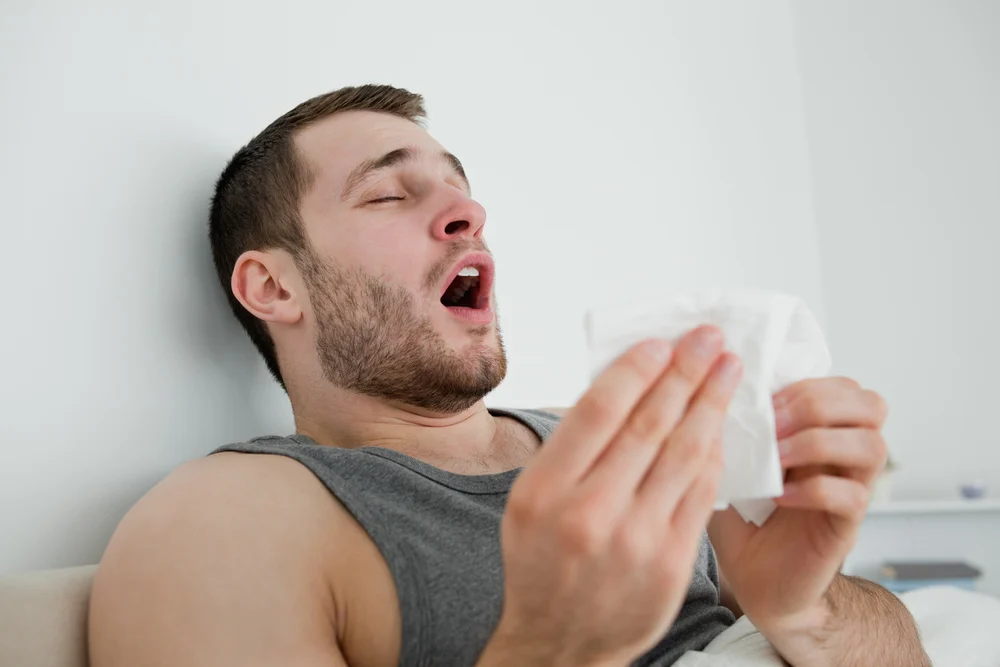Upper Back Pain and Coughing: Unraveling the Connection
A persistent cough can leave you feeling drained and uncomfortable. But when that cough triggers upper back pain, it can be particularly concerning. This article delves into the reasons why coughing might make your upper back hurt, equipping you with knowledge to navigate this issue.
The Culprits Behind the Upper Back Ache
Coughing involves a forceful expulsion of air from your lungs. This action engages various muscles throughout your body, including those in your upper back. Here are some potential reasons why coughing might trigger pain in this region:
-
Muscle Strain: The forceful nature of coughing can strain the muscles in your upper back, particularly those between your shoulder blades and along your spine. This strain can lead to aches, soreness, and tightness in the upper back.
-
Muscle Spasm: Repetitive coughing can irritate the muscles in your upper back, causing them to involuntarily contract and tighten. This can manifest as a muscle spasm, resulting in sharp pain and limited mobility.
-
Ligament Sprain: The ligaments connect your bones in the upper back. The forceful actions during a cough can stretch or tear these ligaments, leading to pain and inflammation.
-
Pinched Nerve: In some cases, coughing can irritate or compress nerves in your upper back or neck. This can cause pain that radiates to other areas, like your shoulder blade or arm.
-
Underlying Conditions: While less common, upper back pain triggered by coughing could be a sign of an underlying condition. These include:
- Costochondritis: Inflammation of the cartilage that connects your ribs to your breastbone.
- Pleurisy: Inflammation of the lining of your lungs and chest cavity.
- Vertebral fractures: Tiny fractures in the bones of your upper spine.
Recognizing the Cause:
The specific cause of your upper back pain can influence the characteristics of the pain. Here are some pointers:
- Muscle Strain/Spasm: A dull ache or tightness that worsens with coughing or deep breathing.
- Ligament Sprain: Sharp pain that may be localized to a specific spot in your upper back.
- Pinched Nerve: Pain that radiates to other areas, like your shoulder blade or arm, along with potential numbness or tingling.
- Underlying Condition: Pain might be accompanied by additional symptoms like fever, shortness of breath, or chest pain.
Soothing the Upper Back Ache: Self-Care Strategies
In most cases, upper back pain triggered by coughing is temporary and resolves on its own with proper care. Here are some self-care strategies to promote healing and find relief:
- Rest: Allow your body time to heal. Avoid strenuous activity that could further strain your upper back muscles.
- Heat Therapy: Apply a heating pad or warm compress to your upper back for 15-20 minutes at a time, several times a day. The warmth helps relax tense muscles and improve blood flow.
- Ice Therapy: In the initial stages (first 24-48 hours), use ice packs wrapped in a thin towel to reduce inflammation and swelling. Limit application to 15-20 minutes at a time.
- Over-the-Counter Pain Medication: Medications like acetaminophen or ibuprofen can help manage pain and inflammation.
- Gentle Stretching: Once the initial pain subsides, gentle stretches can improve flexibility and reduce muscle tightness. Focus on stretches that target your upper back and shoulder blade muscles.
- Maintain Good Posture: Practice good posture while sitting, standing, and sleeping. This helps distribute stress evenly across your body and reduces strain on your upper back muscles.
When to Seek Professional Help:
If your upper back pain is severe, persistent, or accompanied by other concerning symptoms, it’s crucial to seek professional medical attention. Here are some red flags that warrant a visit to your doctor:
- Intensifying pain: If the pain worsens instead of improving with self-care measures.
- Fever, chills, or shortness of breath: These could indicate an underlying infection.
- Radiating pain: Pain that travels down your arm or leg could be a sign of a pinched nerve.
- Difficulty sleeping: Severe pain can significantly disrupt sleep.
- Loss of mobility: If the pain limits your ability to move your upper back or arm.
Frequently Asked Questions (FAQ)
Q: Why does my upper back hurt only when I cough?
A: Coughing involves forceful muscle contractions in your upper back. If these muscles are strained, inflamed, or irritated, the action of coughing can trigger pain.

